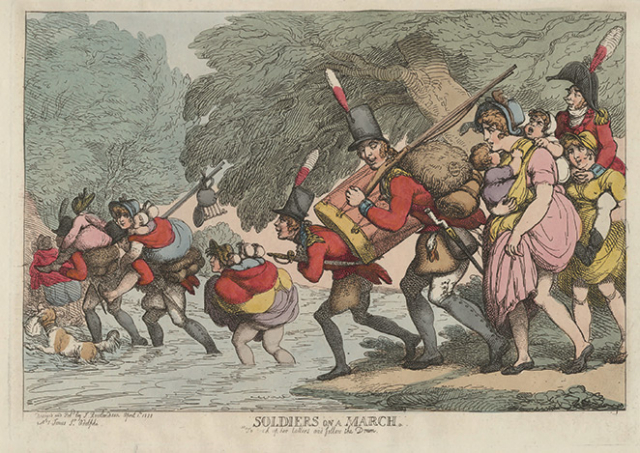British-Army camp followers in the Peninsular War
Historian article

Charles J. Esdaile throws light on a vital part of a field army that receives little study, the ‘baggage train’.
The subject of the involvement of women’s involvement in warfare is one that over the past 20 years has become increasingly fashionable, and there is, therefore, a growing literature on the subject. That said, it cannot but be felt that too much of the energy expended on such projects has been wasted. Thus, the bulk of the attention concerned has been lavished on either popular heroines who emerged from obscurity in the midst of battle and hurled themselves upon the enemy in some stirring act of derring-do (a good example here is the famous Agustina of Aragón, or, more properly, Agustina Zaragoza Domenech, a soldier’s wife whose story became so popularised that she is today the most famous individual participant in Spain’s war against Napoleon) or women who disguised themselves as men so that they could enlist as soldiers, and in a few instances were allowed to continue the fight even when their real identity was uncovered (one thinks here of the Spanish partisan leader, María Martín de Ibaibarriaga; the Russian ‘cavalryman’, Nadezhda Durova, or the Prussian freikorps volunteer, Leonora Prochaska)...
This resource is FREE for Historian HA Members.
Non HA Members can get instant access for £2.49

